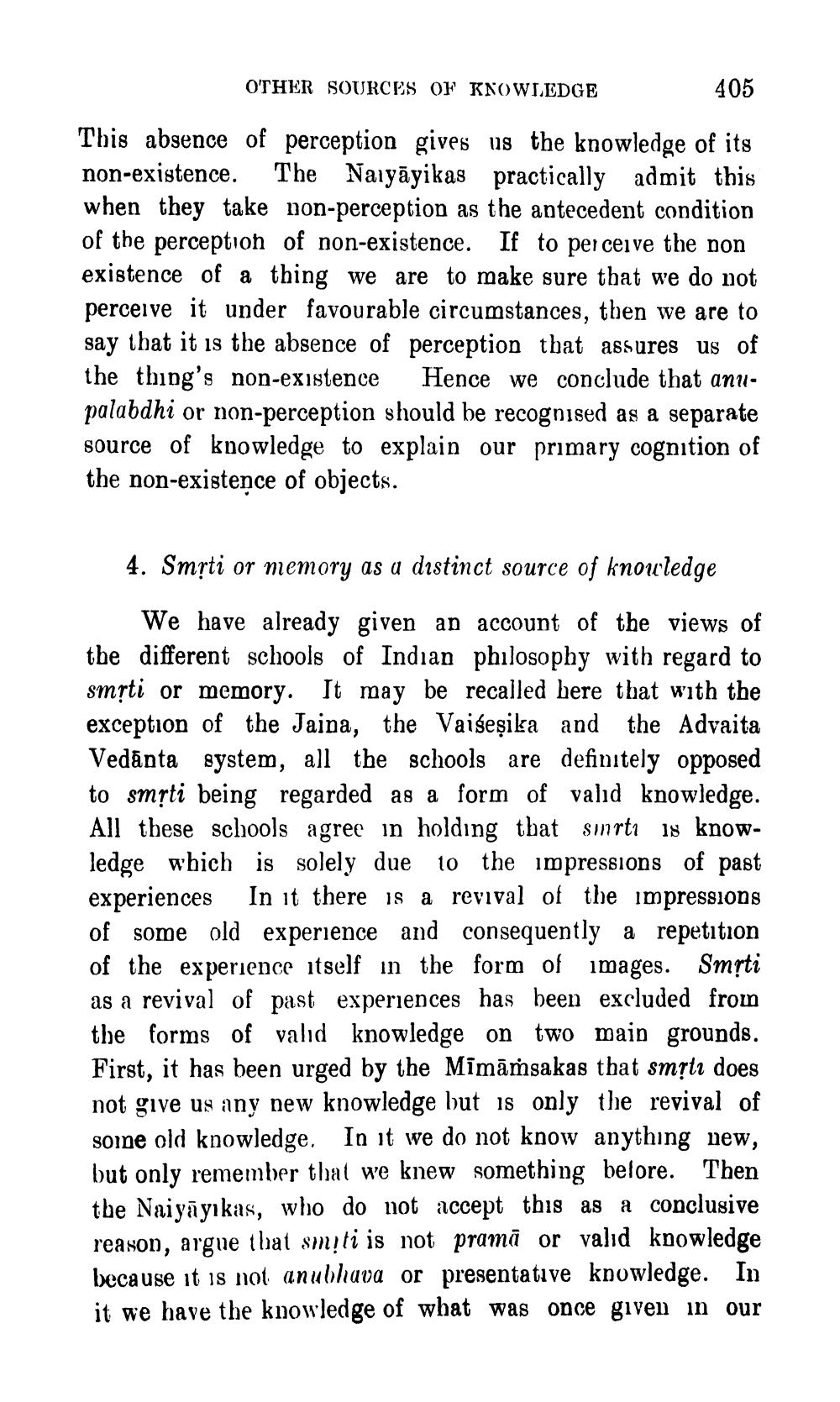________________
OTHER SOURCES OF KNOWLEDGE
405
This absence of perception gives us the knowledge of its non-existence. The Naiyāyikas practically admit this when they take non-perception as the antecedent condition of the perception of non-existence. If to perceive the non existence of a thing we are to make sure that we do not perceive it under favourable circumstances, then we are to say that it is the absence of perception that assures us of the thing's non-existence Hence we conclude that anupalabdhi or non-perception should be recognised as a separate source of knowledge to explain our primary cognition of the non-existence of objects.
4. Smrti or memory as a distinct source of knowledge
We have already given an account of the views of the different schools of Indian philosophy with regard to smộti or memory. It may be recalled here that with the exception of the Jaina, the Vaiseșika and the Advaita Vedānta system, all the schools are definitely opposed to smộti being regarded as a form of valid knowledge. All these schools agree in holding that smrti is knowledge wbich is solely due to the impressions of past experiences in it there is a revival of the impressions of some old experience and consequently a repetition of the experience itself in the form of images. Smộti as a revival of past experiences has been excluded from the forms of valid knowledge on two main grounds. First, it has been urged by the Mimāṁsakas that smộtı does not give us any new knowledge but is only the revival of soine old knowledge. In it we do not know anything new, but only remember that we knew something belore. Then tbe Naiyāyikas, who do not accept this as a conclusive reason, argue that smiti is not pramā or valid knowledge because it is not anubhava or presentative knowledge. In it we have the knowledge of what was once given in our




